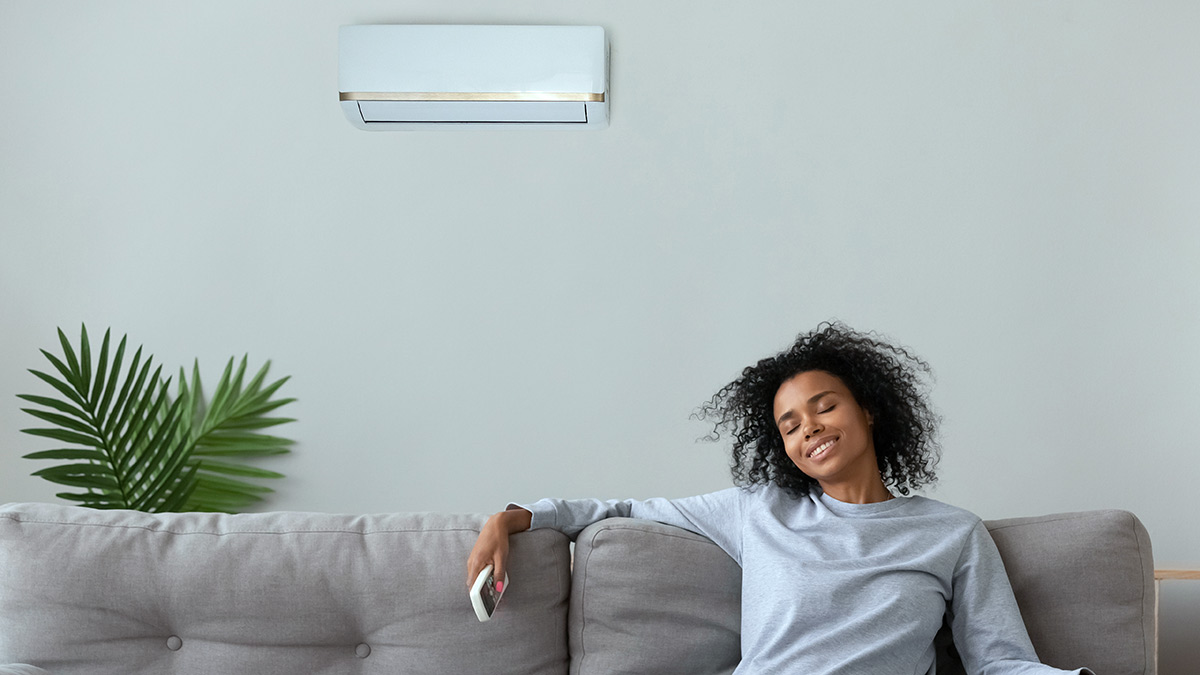Does an air conditioner work as an air purifier? - CHOICE
Does an air conditioner work as an air purifier? - CHOICE |
| Does an air conditioner work as an air purifier? - CHOICE Posted: 30 Jan 2020 08:59 PM PST  Need to know
With air purifiers selling out in many stores around Australia following the rise in pollutants from bushfires, we've been asked a new question about air conditioners lately: can an air conditioner filter out bushfire smoke or other pollution once it's inside your home? Unfortunately, most air conditioners aren't built for that type of air filtration. But there are some types of air conditioner filter that could prove useful on smoky days. In-built dust filters won't do much for smokeAll air conditioners have a dust filter in the indoor unit. This traps dust from the air as it circulates through, mainly to stop it clogging up the internal workings. But a dust filter will only have a minimal effect, if any, on smoke and other fine particles. Check the instructions for how to access the filters and how often you should clean them. Clean filters allow easier airflow and help your air conditioner run more smoothly and efficiently. See our guide and video on how to clean and maintain your air conditioner. Ionisation filters can help with smoke – a bitSome air conditioners include an air purification filter based on ionisation. There are a few variations on this type, including photocatalytic and plasma stream filters. Ionisation filters can remove at least some smoke, but usually the claims for these filters focus on the removal of fine dust, odours, allergens and germs. How does an ionisation filter work?Ions (charged particles) are generated inside the air conditioner's indoor unit, and are used to trap or break down pollutant particles such as dust, pollen or bacteria. The ions may be spread through the room, or they can be generated on the surface of a catalytic plate inside the unit. The ions attach to the pollutant particles, and then the particles either:
Are ionisation filters common in air conditioners?Many major brands offer some form of ionisation-based air purification filter, usually in their most recent or premium model ranges. Examples include:
Any downside to using these filters?They'll need cleaning and replacement from time to time. Check the unit's instructions. And ionisation can create small amounts of ozone, which can be an irritant to breathing. It's hard to say how significant the amount of ozone would be, but it's a factor to consider if you suffer from asthma or any other respiratory disorders. Catechin filtersSome models also offer a catechin-based filter. Catechin is a plant extract with antifungal and antibacterial properties. Catechin filters are intended to trap and eliminate bacteria, mould spores and some other fine particles. The risk of buying an aftermarket air purifying filterA quick look online shows various aftermarket air purifying filters for air conditioners, described as electrostatic, activated carbon or similar. They claim to be compatible with major air conditioner brands and in some cases can be cut to size to suit different models. Be cautious with any such filters. While they may provide filtration as claimed, it's highly unlikely that they've been thoroughly tested with every air conditioner brand, and using non-genuine parts may reduce your air conditioner's performance, possibly cause damage and could void your warranty. HEPA filters are still the best option for smokeThe best way to filter out very fine particles such as smoke is with a HEPA filter (high-efficiency particulate air), which are in many vacuum cleaners and most air purifier units, but not in air conditioners. Generally, HEPA filters only work well at low airflow levels, due to the density of the filter. That means they can't practically be fitted to domestic split-system or ducted air conditioners, which often have to deliver much greater volumes of airflow than a dedicated air purifier. It's possible, with extensive redesign, that domestic air conditioners with true HEPA filtration might appear in the future. Kelvinator's current range of split-system models have "Bio-HEPA" filters, along with an ion filter. We haven't seen the technical details, but a Kelvinator spokesperson advised that if you're looking for a meaningful amount of purification, you should be looking at air purifiers rather than split-system air conditioners. This suggests that the effect of these Bio-HEPA filters is limited. Given how they're fitted, it seems likely that only some air ends up passing through the air purification filter while the rest flows around it. |
| Best Air Purifiers for Wildfire Smoke - ConsumerReports.org Posted: 01 Nov 2019 12:00 AM PDT  Not all air purifiers do a good job removing smoke particulates. As a group, the most effective against smoke have a HEPA filter, which uses a fan to force air through a fine mesh to trap particles. The very best air purifiers fitted with HEPA filters can reduce particle concentrations by as much as 85 percent, according to the EPA. If you want to get rid of the smell of smoke in addition to particles, you'll want an air purifier that also has a carbon filter to adsorb odors. Generally, HEPA air purifiers range from $50 to more than $1,000. But our experts advise against buying one for rooms smaller than 150 square feet because those models perform poorly in our tests. Purifiers for rooms larger than 350 square feet are much better at removing smoke. Most of CR's recommended air purifiers fall into that category. To test how well these machines trap small particulates from smoke, we inject cigarette smoke particles as small as 0.1 micron into a sealed room and use a particle counter to measure the number and size of particles in the room as an air purifier works. Because air purifiers typically have a number of speed settings, we test for smoke removal both at the highest speed and at a lower speed. (Some models that perform well at high speeds don't do as well at low speeds.) We also measure noise levels at every speed a machine has because you'll need to run it 24 hours a day—even overnight—for it to be effective. We also calculate annual operating costs, which include filter replacements and energy use. For more information on air purifiers, check out CR's air purifier buying guide. Read on for ratings and reviews of five air purifiers from our tests that work well at reducing wildfire particulates. Plus, see our additional tips for keeping your home smoke-free. |
| You are subscribed to email updates from "best air purifier for dust removal" - Google News. To stop receiving these emails, you may unsubscribe now. | Email delivery powered by Google |
| Google, 1600 Amphitheatre Parkway, Mountain View, CA 94043, United States | |
Comments
Post a Comment